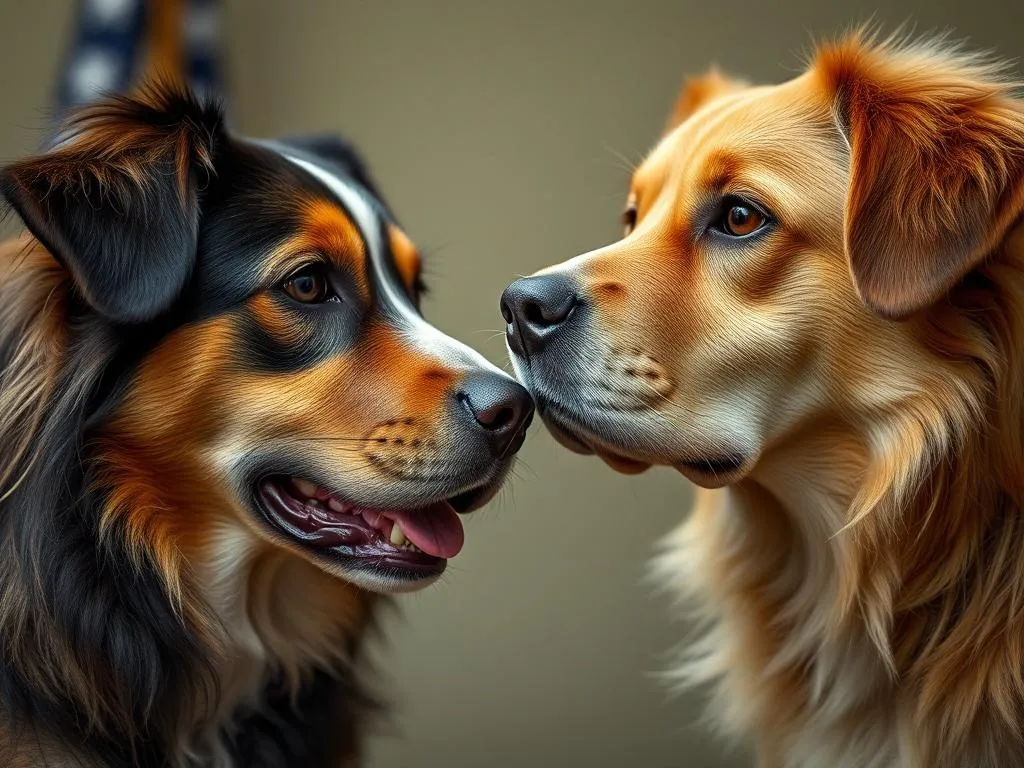
Introduction
National Dogs in Politics Day is a whimsical yet meaningful observance that showcases the undeniable bond between our four-legged friends and the political world. This day serves to highlight the significant role dogs play in the lives of politicians, as well as their impact on political campaigns and public perception. Established to honor the countless dogs that have walked alongside leaders, National Dogs in Politics Day is a reminder of the loyalty, companionship, and sometimes even the charm that these pets bring to the often serious sphere of politics.
The notion of dogs as integral companions to politicians is not a new phenomenon; it has deep roots in history. From the loyal hound of President Franklin D. Roosevelt, Fala, to Richard Nixon’s Checkers, dogs have played pivotal roles in shaping the public image of their owners. This article delves into the intersection of dogs and politics, exploring their cultural and political influence while celebrating the unique observance of National Dogs in Politics Day.
The Role of Dogs in Political History
Historical Significance
Throughout history, numerous dogs have left their paw prints on the political landscape. Perhaps one of the most famous is Fala, the Scottish Terrier owned by President Franklin D. Roosevelt. Fala became a symbol of the Roosevelt administration and was so cherished that he was even a subject of political campaigns. Fala is often associated with the warmth and humanity that Roosevelt projected, demonstrating how a pet can enhance a politician’s image.
Then there’s Checkers, the Cocker Spaniel gifted to Richard Nixon, which made headlines during the 1952 campaign. Nixon’s emotional televised speech about Checkers helped humanize him to the public and played a crucial role in his political survival at that moment. These examples illustrate how dogs serve not only as companions but also as powerful symbols in the realm of politics.
Symbolism in Politics
Dogs represent loyalty and companionship, qualities that resonate deeply with the public. When a politician is seen with their dog, it fosters a sense of relatability and warmth that can be advantageous during campaigns. For many voters, seeing a candidate with a dog can evoke feelings of trust and familiarity, ultimately influencing their voting decisions.
The presence of dogs in political settings can also serve as an emotional anchor, allowing politicians to connect on a personal level with their constituents. Studies have shown that candidates who feature their pets in campaigns often enjoy a more favorable public perception. This dynamic underscores the role of dogs not just as pets, but as strategic assets in the political arena.
National Dogs in Politics Day Observance
Date and Celebration
National Dogs in Politics Day is observed annually on October 24. This date serves as a reminder to reflect on the important role that dogs play in the lives of politicians and the broader political culture. Celebrating this day typically involves a range of activities that engage communities and promote awareness about the significance of dogs in politics.
Activities and Events
Communities across the country celebrate National Dogs in Politics Day with various events and activities. Dog parades are popular, where pet owners and their canine companions dress up in political-themed attire, showcasing their furry friends’ playful side. Fundraisers often accompany these events, with proceeds going to local animal shelters or organizations advocating for animal welfare.
Social media campaigns are also a significant part of the celebration. Many people share photos and stories of their dogs alongside political figures, using hashtags such as #DogsInPolitics and #NationalDogsInPoliticsDay. These online initiatives foster a sense of community and encourage greater engagement with the day.
The Impact of Political Dogs on Campaigns
Influence on Voter Perception
The presence of dogs in political campaigns can significantly influence voter perception. Studies indicate that candidates who prominently feature their pets tend to be viewed more favorably by the electorate. For instance, a survey conducted during a recent election cycle found that voters were more likely to support candidates who shared images of themselves with their dogs on social media.
Anecdotal evidence also supports this trend. For example, during the 2020 presidential campaign, several candidates utilized their dogs in promotional materials, showcasing their family-oriented side. This strategy not only resonated with dog lovers but also helped to humanize candidates in an increasingly polarized political climate.
Case Studies
Analyzing specific campaigns where dogs played a pivotal role reveals valuable lessons. Take the case of then-Senator Barack Obama, whose Portuguese Water Dog, Bo, became a media sensation during his presidency. Bo’s presence in the White House not only endeared Obama to millions of dog lovers but also contributed to a more relatable image.
Similarly, in the 2016 election, candidate Hillary Clinton’s dog, Tally, made appearances in her campaign materials, reinforcing her family-oriented message. These examples underscore how effectively integrating dogs into political campaigns can yield positive results, both in terms of public perception and voter engagement.
Dogs as Symbols of Change and Advocacy
Advocacy for Animal Rights
Dogs in politics can also serve as powerful advocates for animal welfare policies. When politicians showcase their dogs, they often bring attention to issues such as pet adoption, animal rescue, and animal rights legislation. This visibility can lead to increased public support for policies aimed at improving the lives of animals.
Several politicians have championed dog-related legislation, using their platforms to promote causes that resonate with voters. For instance, politicians who advocate for stricter animal welfare laws or funding for shelters can leverage their love for dogs to rally support for these initiatives. This advocacy not only reflects personal values but also aligns with broader societal trends toward compassion for animals.
Cultural Reflections
The relationship between dogs and politics also reflects broader societal values and discussions. As our culture increasingly values empathy, connection, and social responsibility, dogs symbolize these ideals within the political arena. They remind us that politics is not just about policies and platforms but also about the human experience.
In a world where divisive politics often dominate headlines, the presence of dogs can serve as a unifying force. They remind us of our shared values and the importance of compassion in governance. The way dogs are integrated into political narratives can reshape public discourse, encouraging a more humane approach to leadership.
Engaging with National Dogs in Politics Day
How to Participate
Participating in National Dogs in Politics Day is a fun and engaging way for individuals and families to celebrate the bond between dogs and politics. Here are some tips for getting involved:
- Host a Dog Parade: Organize a local dog parade that invites community members to dress their dogs in political attire or themed costumes.
- Social Media Sharing: Share photos of your dogs on social media, using the hashtag #DogsInPolitics. Encourage friends and family to do the same.
- Community Events: Attend or volunteer at local events that promote pet adoption or animal welfare, aligning with the values of National Dogs in Politics Day.
Promoting Awareness
Raising awareness about National Dogs in Politics Day can be achieved through various strategies. Here are some effective ways to promote the day:
- Create Social Media Challenges: Launch a challenge that encourages people to post pictures of their dogs with political messages or in creative costumes.
- Engage Local Media: Reach out to local newspapers and radio stations to cover events related to the day, highlighting its significance and encouraging community participation.
- Collaborate with Animal Shelters: Partner with local animal shelters for events that promote pet adoption, offering a platform to discuss the role of dogs in politics.
Conclusion
National Dogs in Politics Day serves as a delightful celebration of the bond between dogs and the political world. From historical figures like Fala and Checkers to the modern-day political campaigns, dogs have played an essential role in shaping public perception and influencing voter behavior.
The day encourages us to reflect on the enduring relationship between dogs and politicians, reminding us of the loyalty, companionship, and empathy that these animals represent. As we celebrate National Dogs in Politics Day, let us embrace the joy that dogs bring to our lives and consider their impact on political culture. Engaging with this observance can foster community, raise awareness for animal advocacy, and remind us of the profound connections between humanity and our canine companions.









